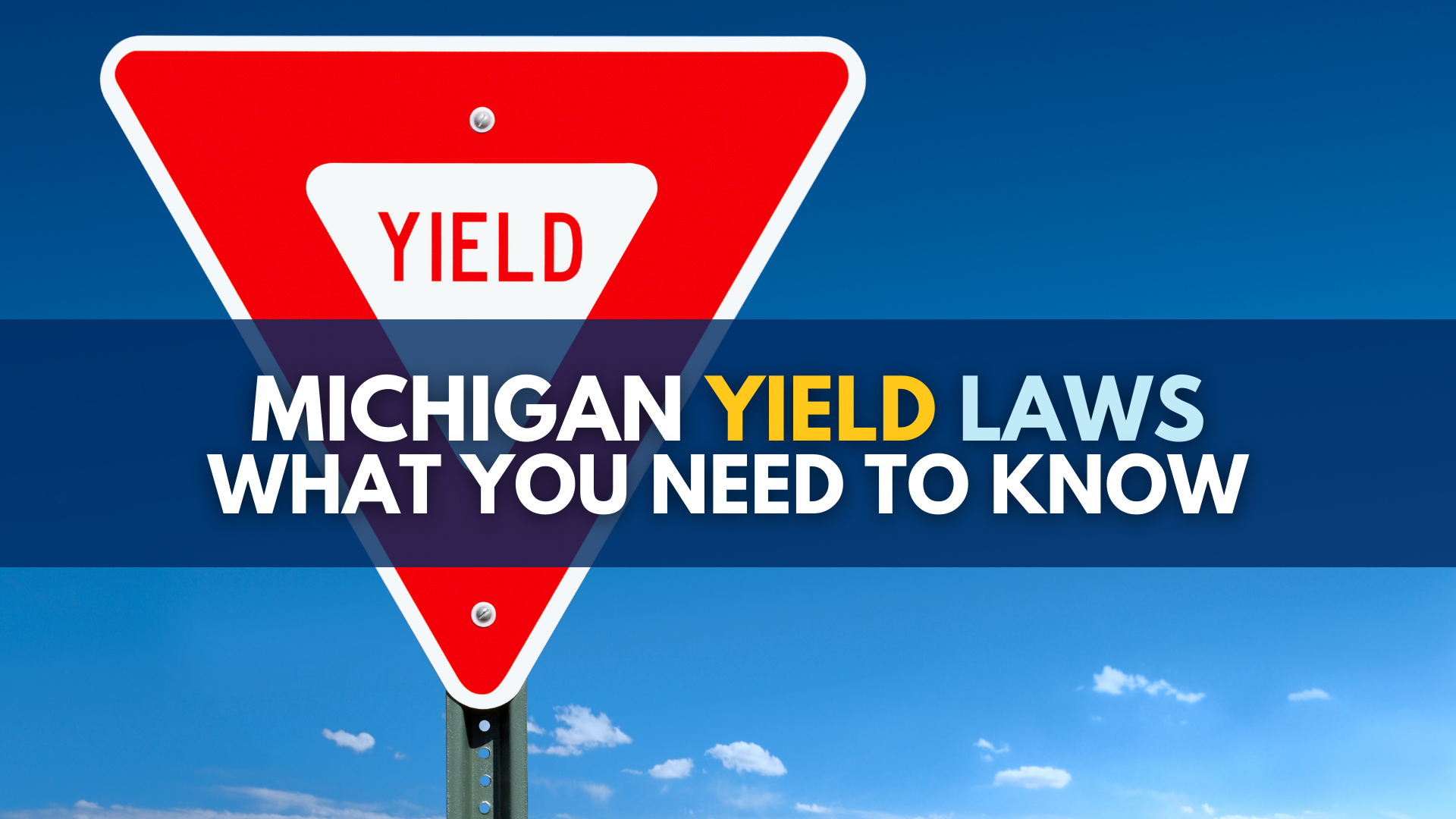
In Michigan, to get a police report for a car accident you were involved in, you can request a copy of the UD-10 Traffic Crash Report from the state police or the local department that investigated the crash. You will need the date of the crash, your birthday, driver license number and possibly incident number.
Michigan law requires that a report be filed immediately with the police after an auto accident that involved death, injury or damage to property worth $1,000 or more.
Filing a police report after a car accident in Michigan is important. Many insurance companies will require one before opening up a No-Fault insurance claim to pay No-Fault PIP benefits, such as lost wages and medical bills. You will also need the information on the at-fault, negligent driver who caused the crash if you are considering filing a lawsuit or making an injury claim against the at-fault driver for pain and suffering compensation.
Do you have to report a car accident to the police in Michigan?
According to Michigan law, filing a police report after a car accident is required if the crash caused a person’s death, caused a person to be injured or resulted in property damage totaling $1,000 or more. (MCL 257.622)
As an auto accident attorney, I always tell family, friends, colleagues and clients that filing a Michigan car accident police report is one of the most important things you can do after a motor vehicle crash.
Do you need a police report for a car accident in Michigan?
Michigan law requires that a car accident be immediately reported to the police if the crash involves death, injury or property damage of $1,000 or more. (MCL 257.622) You will also likely need a police report for your car accident when you apply for No-Fault benefits or file an insurance claim or lawsuit.
Can you claim a car accident without a police report in Michigan?
According to Michigan law, if a car accident causes death, injury or property damage of $1,000 or more, the law mandates that a police report be filed. Depending on your insurer, you may not be able to claim a car accident without a police report. It is required for hit-and-run crashes and often for No-Fault benefit applications.
Many Michigan auto insurance companies will require an auto accident victim to make a “written report” to the police within 24 hours of a hit-and-run crash in order to make a claim for “uninsured motorist” and/or “underinsured motorist” benefits as well as collision and comprehensive coverage. Whether this requirement applies in your case, it will depend on who your insurer is and what the terms of your policy are.
Similarly, in order to claim Michigan No-Fault benefits after a car accident, you may need to include a police report as part of your supporting “proof of loss” documentation with the application for benefits that you file with your auto insurer or with the Michigan Assigned Claims Plan.
How long to file a police report after a car accident in Michigan?
Michigan law requires that you immediately file a police report after a car accident when a crash involves death, injury or property damage of $1,000 or more. (MCL 257.622) You must report the crash “at the nearest or most convenient police station, or to the nearest or most convenient police officer.”
In Michigan, you may have only 24 hours to file a police report after a hit-and-run car accident if you are claiming benefits under your “uninsured motorists” insurance coverage, but it will depend on the terms of your policy.
The law does not define “immediately,” nor does the law specify how many days after a crash a police report can be filed in compliance with the law.
How to get a police report for a car accident in Michigan
- Go to Traffic Crash Purchasing System
- Enter your driver’s license number
- Enter the crash/case/incident number
- Enter your date of birth
- Enter the date of the crash
- The fee is $10.00
- Pay with a valid credit card
- Download your crash report
The crash/case/incident number will be provided to you by the police officer at the scene of your auto accident. This number will appear on the UD-10 Traffic Crash Report.
What is a UD-10?
A UD-10 is the “Traffic Crash Report” that the police fill out in Michigan when they are made aware of an car accident that occurred. This is the police report that the law requires people to file after a crash involving death, injury or property damage worth $1,000 or more.
Does an accident report include insurance information?
The Michigan UD-10 Traffic Crash Report that is filled out after a crash includes both insurance company and insurance policy number information for each vehicle involved in the crash.
Do insurance companies require you to report a crash to the police?
Nearly every auto insurance company will require you to provide a copy of the police report at some point as part of the process for submitting and opening your insurance claim.
What are the practical benefits of informing the police about an auto accident?
Aside from the legal obligations, here are the 8 reasons why as an auto accident attorney, I always advise people that you MUST file a report with the police after a crash:
- You want to make sure the information in the UD-10 Traffic Crash Report is accurate and complete. I’ve been an auto accident attorney for nearly 30 years, and I’ve seen a lot of critical mistakes on UD-10 Traffic Crash Reports including police reversing who the at-fault driver is or putting down the wrong location or failing to list passengers in the vehicle. In addition, if the at-fault driver who caused your car accident is disputing he or she caused the crash, then having an attorney obtain witness statements from eyewitnesses, hiring experts and accident reconstructionists, or doing site inspections becomes critical.
- Most reports will also include statements from both drivers and from witnesses, along with the names and addresses of witnesses, the insurance information of both drivers involved in the crash, and a diagram and narrative of the investigating officer’s opinion on how the crash occurred. As I said above, any discrepancies between the UD-10 traffic crash report and what really happened must be corrected as soon as possible. Failing to correct these errors can have very real consequences and can even affect your ability to sue an at-fault, negligent driver for your injuries.
- Failing to correct these errors on a UD-10 Traffic Crash Report can also affect and even negate your ability to bring an uninsured or underinsured motorist claim with your own insurance company if you were hit and injured by an uninsured driver or a driver who is underinsured (meaning you have injuries that are worth more than the insurance coverage that the at-fault negligent driver has to pay for his or her liability arising out of the crash).
- Having a police report for a car accident in Michigan also allows your lawyer to comply with any and all notice provisions in your insurance policies. This will speed up the process by allowing your lawyer to promptly file your lawsuit or injury claim and comply with contract filing requirements that auto insurance companies insert in their uninsured motorist (UM) and underinsured motorist (UIM) coverage policies, health insurance policies, and umbrella coverage policies.
- A police report for your car accident in Michigan will help your lawyer to prove that the at-fault driver was truly at-fault for causing your crash. Even if the observations made by the police officer may not be admissible, the statements (admissions) of the at-fault driver are admissible. It is amazing to me still how often a person’s story completely changes from what he says at the scene to an investigating police officer to what he says when he is in traffic court trying to dismiss a ticket for a traffic violation. As I note above, if there is any indication the potential defendant will later be changing his story or disputing liability, you want your lawyer starting an investigation immediately and locking in liability as soon as possible to prevent him from later changing his story and saying he now was not at-fault.
- If a truck or commercial vehicle was involved in causing your automobile crash there often will need to be an electronic data recorder download and safety inspection. There may be crucial evidence of wrongdoing that can literally add millions to your case that will be erased and lost forever if months go by before your attorney puts the trucking company on notice or files a TRO. Critical evidence of speeding by the trucking company will disappear with a hard reset of the EDR, and it is sadly common to find drugs, stimulants, etc., in the cabin of the truck if an attorney and an expert can get out to inspect the truck shortly after a crash. If an inspection is not performed as soon as possible, the evidence will be lost. Your attorney will need the UD-10 Traffic Crash report to contact the trucking company and tow yard as soon as possible.
- In Michigan, the auto insurance companies may deny your claim or put your claim “under investigation” (which is a euphemism for eventually denying your claim anyway) for auto No-Fault insurance benefits without a report on file. This means you will potentially lose your right to No-Fault wage loss for up to three years, and coverage of your medical expenses and bills if you need medical treatment if you cannot prove that you were involved in an automobile crash.
- If you are injured in a crash caused by an uninsured driver – and remember 50% of drivers in Detroit are driving uninsured – or if you are injured by a driver with inadequate liability policy limits compared to the severity of your injuries, then your claims for “underinsured motorist” or “uninsured motorist” benefits could be denied if you have not filed a police report. The reason is that uninsured and underinsured motorist coverage in Michigan are considered purely contractual, and if your auto insurance company conditions their UIM and UM benefits on their insured having filed a report, that contractual provision will be upheld. Many insurance companies do have this contract language requiring a police report before filing a claim. Many insurers even require that the police report must have been filed within 24 hours of the crash, especially if it was a hit-and-run. If this is the case with your own auto insurance company, then even if you suffered a very serious crash-related injury, the lack of a filed report could cost you your right to recover compensation for your injuries and pain and suffering from your crash.
How can a police report help with a mini tort claim?
The lack of a police report could jeopardize a person’s mini tort claim, which allows a vehicle owner to collect up to $3,000 for vehicle damage repair costs from the at-fault driver.
In Michigan, without a UD-10 to document what happened, a judge or an insurance adjuster may decide that the person has “inadequate proof” that: (1) a car accident ever occurred; (2) the other driver was at-fault (proving this months after the fact with no police report or witnesses is extremely difficult); or (3) the vehicle damage was not already pre-existing before the car accident.
Any or all of these determinations are significant because they all address essential elements to proving that one is entitled to recover damages under the Michigan mini tort law.
Injured and need to get a police report for your car accident in Michigan? Call for a free consultation with a Michigan Auto Law attorney now
If you were injured and you need to get a police report for your car accident in Michigan and if you have questions about your legal rights to pain and suffering compensation, economic damages and auto No-Fault insurance benefits and settlements in cases like yours, you can call us toll free anytime 24/7 at (800) 968-1001 for a free consultation with one of our experienced auto accident attorneys. There is absolutely no cost or obligation. You can also get help from an experienced injury attorney by visiting our contact page or chat feature on our website.



